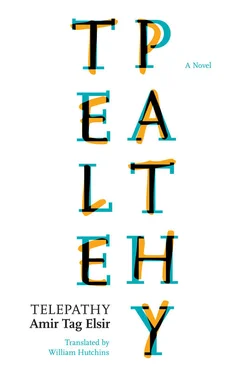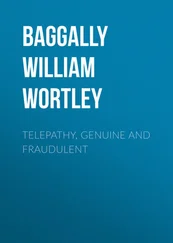Malikat al-Dar’s house was expansive, not physically spacious but emotionally so. Thus at any time it might shelter strangers or people from her village in the North of the country — villagers who were clueless in the capital. The room she allowed me to use was at one side of the relatively large courtyard. It was a rather big room that was furnished with cots and quilts and a small cooler containing water and occasionally food.
The house’s main entrance, which was directly opposite me, had been repainted a dark green; the sign announcing that the occupant had performed the Mecca pilgrimage had also been repainted: “Pilgrimage Accepted, Sins Forgiven, and Praiseworthy Return.” Malikat al-Dar had fulfilled this religious duty once with her husband and another time after he died as a member of an official delegation. Her income from her evening job, which she still retained — as a nurse for a well-known gynecologist and obstetrician — even after she retired from working for the government, was enough to animate her household and her whole life.
I knocked gently on the door, and she opened it herself. She was limping a little. She had symptoms of osteoarthritis in her knees because of her plumpness and advancing age, and these symptoms had become more severe. An orthopedic physician had told her she would need knee replacement surgery soon.
It was late and the house seemed empty. The beds in the open guest room appeared to be unoccupied, and the quilts were folded up. The sound of a colicky infant echoed from one of the inner rooms. I deduced that he was the child of her daughter Fatima, who had been quite pregnant during my last visit (before my trip to Malaysia).
I asked, “Has Fatima given birth?”
“Yes. Her son, Dhu al-Nun, was born nine days ago. You weren’t here for me to tell you. When did you get back?”
I wasn’t at all surprised that this newborn had been given a name that far outstripped his age and that was unlike the names of other contemporary newborns. I knew that Malikat al-Dar and her family loved strong names and imposed them on their in-laws, even if they were foreigners. They regarded modern, wimpy men’s names through eyes filled with pity and regret. Malikat al-Dar had three daughters, each of whom had married and given birth to boys with names like Abd al-Basit, Abd al-Qayyum, al-Tanajiri, Abu al-Ma‘ali, and Suhayb.
I didn’t have a chance to see Fatima, who was resting with the nuisance named Dhu al-Nun, because of the calamity accompanying me: Nishan Hamza Nishan.
I thought Malikat al-Dar hadn’t noticed my companion in the faint light of the courtyard. But I was wrong, because as we crossed the darkest area of the courtyard, she asked, “You haven’t introduced me to your guest?”
I would introduce her to my guest, since she was welcoming him into her home; this was an unavoidable evil. But I wouldn’t pronounce his full name or even part of it. I would limit myself to his father’s name, Hamza, which was a common enough name. I didn’t think he would object. My problem was that she too had read Hunger’s Hopes , although without understanding everything — like other old-fashioned midwives whose educations were limited. She had read it not because she loved reading or was fond of culture in general, but simply because I had written it. She would certainly know that Nishan Hamza Nishan was the lunatic who dwelt in that novel. If I pronounced his full name, I would raise dozens of question marks for which there was absolutely no need.
I said, “My friend Hamza. He’s a writer who has recently begun to make a name for himself. We were driving around, talking, and suddenly found ourselves near your house.”
She didn’t say anything and brought us into a room she normally used to receive transient guests, as opposed to the clueless ones who stayed for extended periods with her. It was an excellent room that was thoughtfully furnished with a large settee and chairs covered in red velvet, as well as two beds made of polished wood on which any tired guest could stretch out. She left us and then returned a few minutes later carrying two glasses of orange juice with ice. She departed, explaining that Dhu al-Nun needed her expertise in the care of newborns in order to quiet down. I knew that she had detected a hint of mystery and wanted to distance herself from it.
Nishan’s telephone and mine rang at the same time. His ringtone was rather strange and sounded like distant barking. My ringtone is very common — it’s a cheerful song that I swear is on three-quarters of the cell phones in this country. I didn’t answer my phone; it was a call from Najma, who no doubt would ask me to comment on something she had written on Facebook about her seminar with Hazaz. I turned off my phone, but Nishan quickly answered his. Although I wasn’t certain, I thought he was speaking to a lady. The voice was shrill and gushing; I could hear some from where I sat. He responded with the word ‘yes’ more than ten times. Then he shut off his phone and turned toward me.
Now, as I listened to his story, I would understand what I had done to him when I wrote Hunger’s Hopes and what he would do to me. He reached for the glass of orange juice, brought it close to his mouth, but set it down again without taking a sip. He cleared his throat, and then began to speak. I became a pair of large ears, something that hadn’t happened to me for a long time.
It was about one in the morning when I dropped Nishan Hamza Nishan off in the Wadi al-Hikma District, a neighborhood being developed on the western edge of the capital. Although it may well become an upscale neighborhood in the future, in its current condition it resembles the miserable district I described in great detail in Hunger’s Hopes . I had never visited it before, because I have no family or friends who live there.
Nishan Hamza was calm except for a slight tremor of his hands and feet, and appeared to be extraordinarily alert mentally. He clasped his copy of Hunger’s Hopes firmly in his right hand while he groped in his pocket with his left hand for a cigarette, although I suspected that he had run out of them. I handed him what was left of my pack and told him as he stepped out of the car that I would return to meet with him again. I didn’t give him my telephone number or ask for his, for fear of consequences I didn’t feel like incurring then.
Most of the houses in Wadi al-Hikma were unfinished skeletons of concrete and red brick. Some were one story, others had two, and a few stretched even higher. In front of them were cots with frames of rough wood and webbing woven from torn ropes. Men hired as sentries to guard the houses were stretched out on these. Other homes, constructed from canvas, corrugated metal, and tree trunks, were scattered through the area. These appeared to house poor people or migrants from remote areas, fleeing war or famine. They had built these shacks on vacant lands that hadn’t been developed yet, and the inhabitants would doubtless be forced to evacuate them when the true owners of the property returned and began building. My companion’s home was one of these huts.
Electricity wasn’t readily available there, and thus the depressing, faint light of scattered gas lanterns provided the night with desolate depth. I thought no one here could have read Hunger’s Hopes . Where there was no intellectual vigor, there would certainly be no reading. As long as Nishan said nothing about this calamity, no one here would know anything.
Before leaving, I made several quick turns through the district in my car pursued by dozens of barking dogs. Then a number of the recumbent sentries rose from their cots to investigate the situation.
Читать дальше












